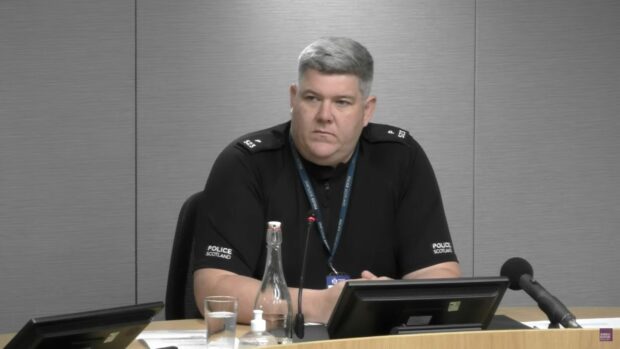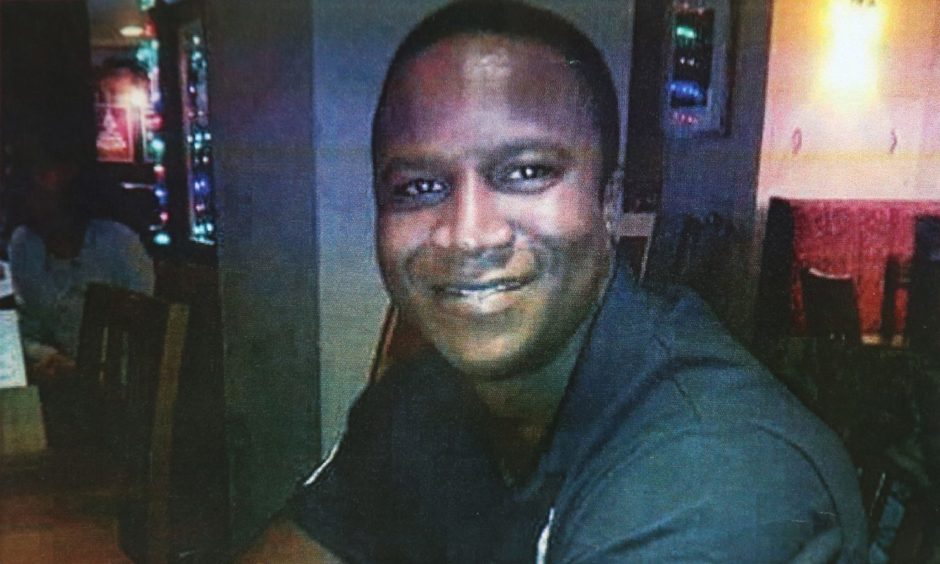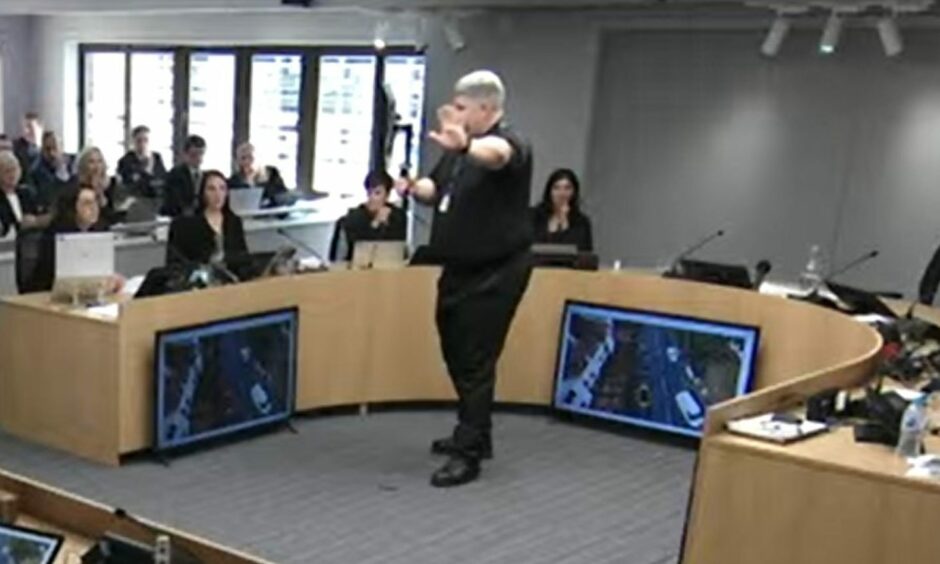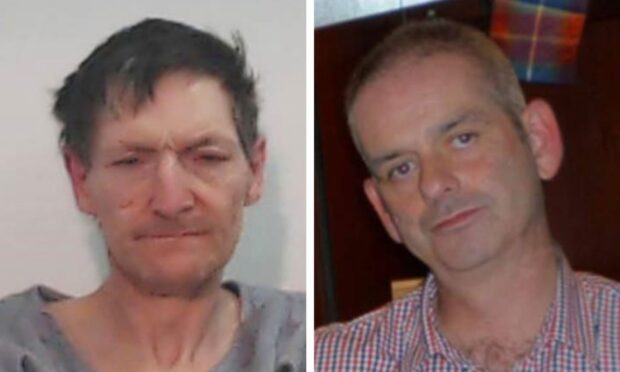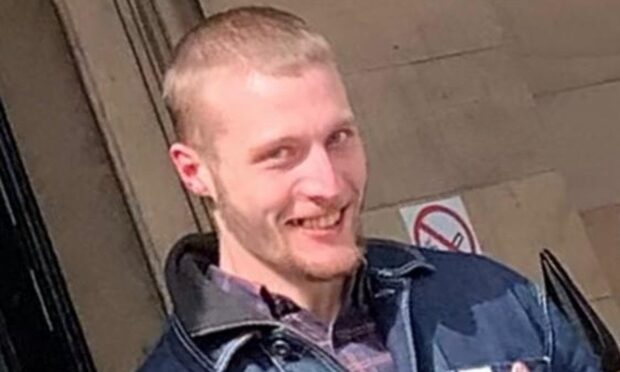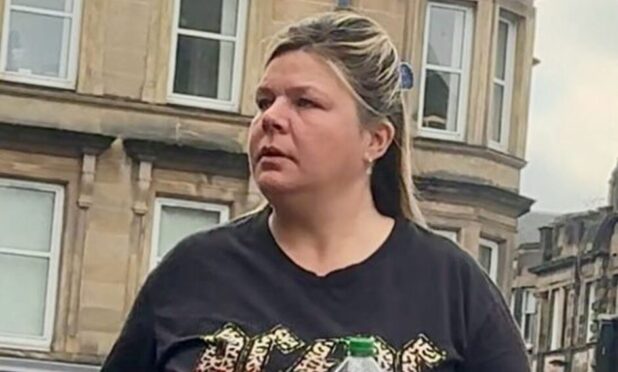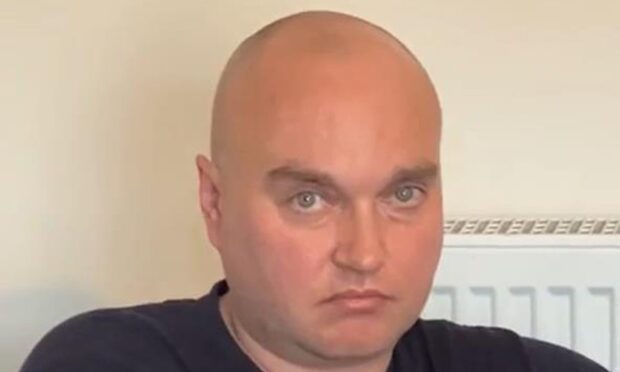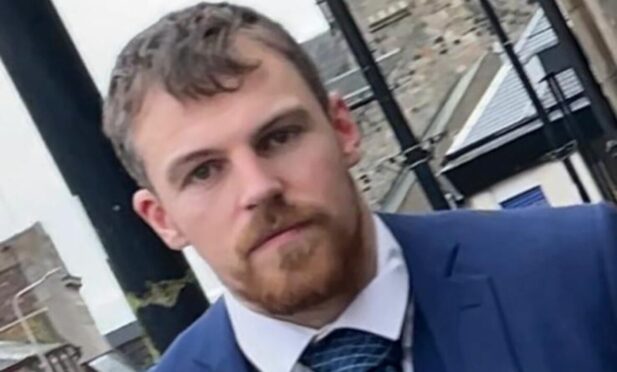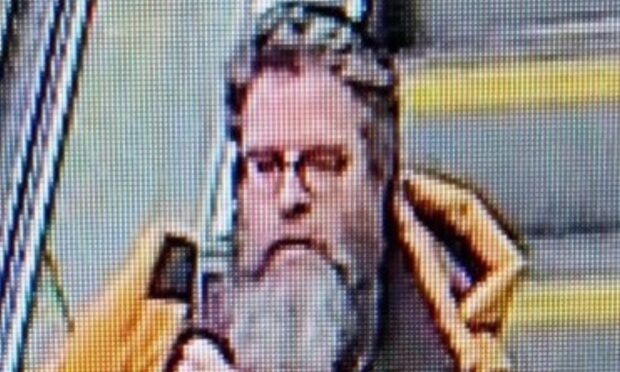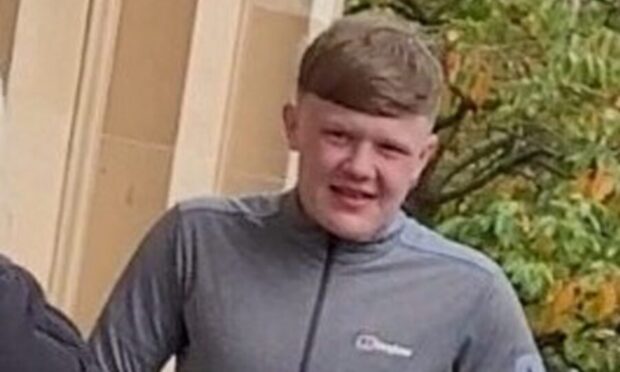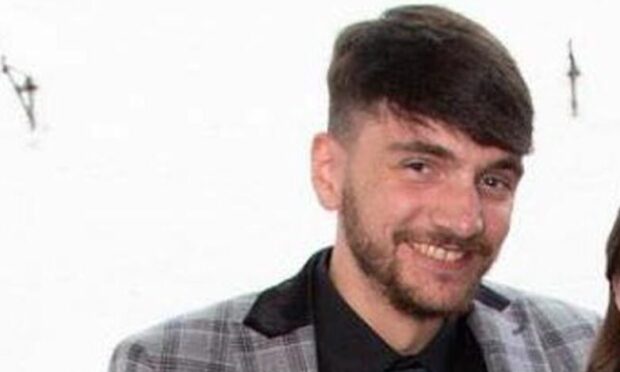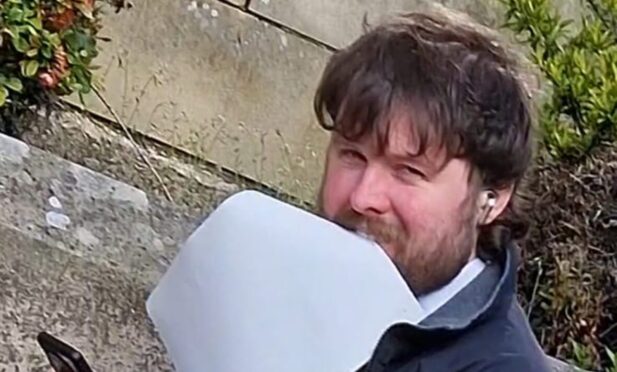A 6’4″, 25-stone police officer who shoulder-barged Sheku Bayoh before punching him on the ground has insisted his actions were reasonable.
PC Craig Walker continued giving evidence on Friday at the inquiry into the Mr Bayoh’s death in police custody.
Mr Walker said the level of force he used when punching him twice in the face was never lethal.
The constable said he “pulled” the punches in an attempt to force 5’10” Mr Bayoh to present his hands for cuffing and only after the 31-year-old aimed blows at his stab vest.
Struggle on the ground
Giving evidence on Thursday, the officer said he considered running Mr Bayoh over in a police vehicle when he arrived at the scene.
Instead, he shoulder-barged him to the ground after claiming he saw him chase a colleague, strike her to the ground and stamp on her.
He said: “Mr Bayoh’s on his back.
“The whole point was to try and reach across and get a hold of his hands and just pin them down and from that point, get cuffs on him.
“There was no plan to it at that point.
“When I went to grab a hold of him, there was an exchange of punches on the ground.
“He started to lash out and punch towards me.
“Then I threw a couple of punches back again.
“It was an ongoing situation from there.
“He was on his back, I was on his right at his lower torso.
“I was struggling with him. He was punching two or three times at me.
“I think it was mainly on my stab vest.
“The two punches that I threw was to his face, to the left side with my right hand.”
The officer said he could not remember how many of Mr Bayoh’s punches connected.
‘Pulled punches, delivered tactically’
He said they were “pulled punches, delivered tactically” in an attempt to make Mr Bayoh present his hands to be cuffed.
“Not full force punches, not looking to hit him hard enough to break any bones or knock him out or anything like that.
“It was a tactic mentioned a few years ago that if you could make contact with somebody’s face, the automatic reaction is to bring their hands up.
“That presents the hands with the wrist area so you can apply cuffs.”
The PC stated he felt Mr Bayoh reached the highest level of resistance on the scale used by police when he saw him “strike PC Short and knocked her to the ground… and the stamp.”
However, Angela Grahame QC put to the officer evidence may be led later that Mr Bayoh never stamped on the officer.
“That was my recollection,” PC walker replied.
The day after Mr Bayoh’s death, Mr Walker was signed off on sick leave for six months.
Race issues addressed
The officer was also quizzed about his attitude to race.
Ms Grahame QC asked: “If you were to respond to a call tomorrow that a black man was in possession of a knife, thinking about the racial awareness training that you’ve had, would you do anything differently tomorrow than you did in 2015?”
PC Walker paused before replying: “No.”
He said he was not aware of stereotypes that black men may be more likely to be violent, of “superhuman strength or size” and more likely to resist arrest.
He said he did not assume Mr Bayoh produced a greater risk
“He was physically quite broad. He looked quite a strong individual.
When asked if he would have seen Mr Bayoh as less of a threat if he was white, the PC said: “No, he still would have been the same physical size.”
He said he had no expectations on what he would find at the scene.
He there were no assumptions made and “everything was intelligence-led.”
He said he had never heard any racist jokes or comments at Kirkcaldy Police Station and would have challenged them if he did.
The inquiry continues.
